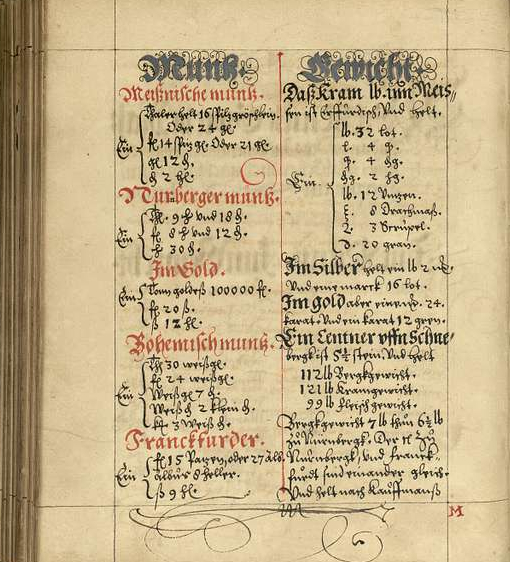Eastern German Records: An Advanced Tutorial
Finding Genealogy Records from the Former German East
Over the years numerous people have asked,
Where can I find Eastern German Genealogy data?
Hopefully, this document will help provide a reasonable response.
It comes as no surprise that there are 'good places' where you can search for genealogical source documentation. But keep in mind, conducting research in an area of the world where neither the government nor peoples of a former land remain is challenging. Do not despair! This page will provide you with useful places to search and succeed.

Rechenbuch-Reinhard - 1599 | Public domain - free to use, no copyright restrictions - Picryl description
Initial Step: Gazetteers and Naming Conventions
The first critical hurdle in researching the former German East (Ehemalige deutsche Gebiete) is locating your ancestral town's name, as most towns were renamed in Polish after 1945. You must know both the German name (to search German-language archives and texts) and the Polish name (to search Polish-language archives and current records).
Use specialized online gazetteers to map the town's name and administrative district:
- Meyers Gazetteer: Excellent for the pre-1918 German Empire structure.
- Kartenmeister: A vital tool for mapping German names to current Polish names and identifying the relevant State Archive (Archiwum Państwowe).
Essential Online Resources
The most reliable sites for surviving source materials include:
Polish State Archives (Archiwum Państwowe)
The current Polish State Archives hold many surviving records from the former German provinces (Silesia, Posen, East & West Prussia). These records are often found in three main places:
- Szukajwarchiwach (Search in Archives): This is the national Polish portal. It's the first place to search, as many records are digitized and available here.
- Geneteka: A Polish genealogical society index of records. While not the actual documents, it often gives you the reference number needed to find the original record on Szukajwarchiwach.
- FamilySearch: The LDS church microfilmed massive amounts of records, often before they were digitized or even before some were destroyed. A large portion of surviving records are accessible here.
Specialized German Archives
Two German archives hold records relating to the diaspora and resettlements after 1945:
Geheimes Staatsarchiv Preußischer Kulturbesitz (GStA PK)
- Dahlem
- Address: Archivstr. 12-14, 14195 Berlin-Dahlem
- Phone: + 49 30 266 43 14 00 | Fax: + 49 30 266 43 14 62
- E Mail: gsta.pk@spk-berlin.de
The GStA PK primarily holds records from Silesia, West Prussia, and the Sudetes region.
Staatsarchiv Leipzig (Archives Leipzig)
- Schongauer Straße 1, 04328 Leipzig
- Phone: + 49 341/25 555 51 | Fax: + 49 341/25 555 55
- E Mail: poststelle-l@sta.smi.sachsen.de
Leipzig documents the eastern provinces of Posen, East, and West Prussia. The Centre holds the "family history collections" of the 1945 resolution Reichssippenamt Office, including originals and films of parish registers. Although almost everything has been copied by the LDS (now FamilySearch).
Summary of Best Sources
The best sources of reliable genealogical data are, in order of usefulness:
- FamilySearch with its vast array of accessible ‘surviving’ Church records, etc.
- Surviving Address Books (multiple sources with the best being, Federacja Bibliotek Cyfrowych)
- Polish Digital Databases (Szukajwarchiwach, Geneteka) and relevant Polish State Archives.
- Textbooks and Histories from the Federacja Bibliotek Cyfrowych
Unfortunately, record loss across the former German Eastern Provinces, during the time period of 1944–1950+, was remarkable and monumental in its breadth and scope. If you are willing to dig and cross-reference, much can still be found or uncovered.
Credits and Licensing
Compiled by Mark Rabideau, Opa & Professional Genealogist.